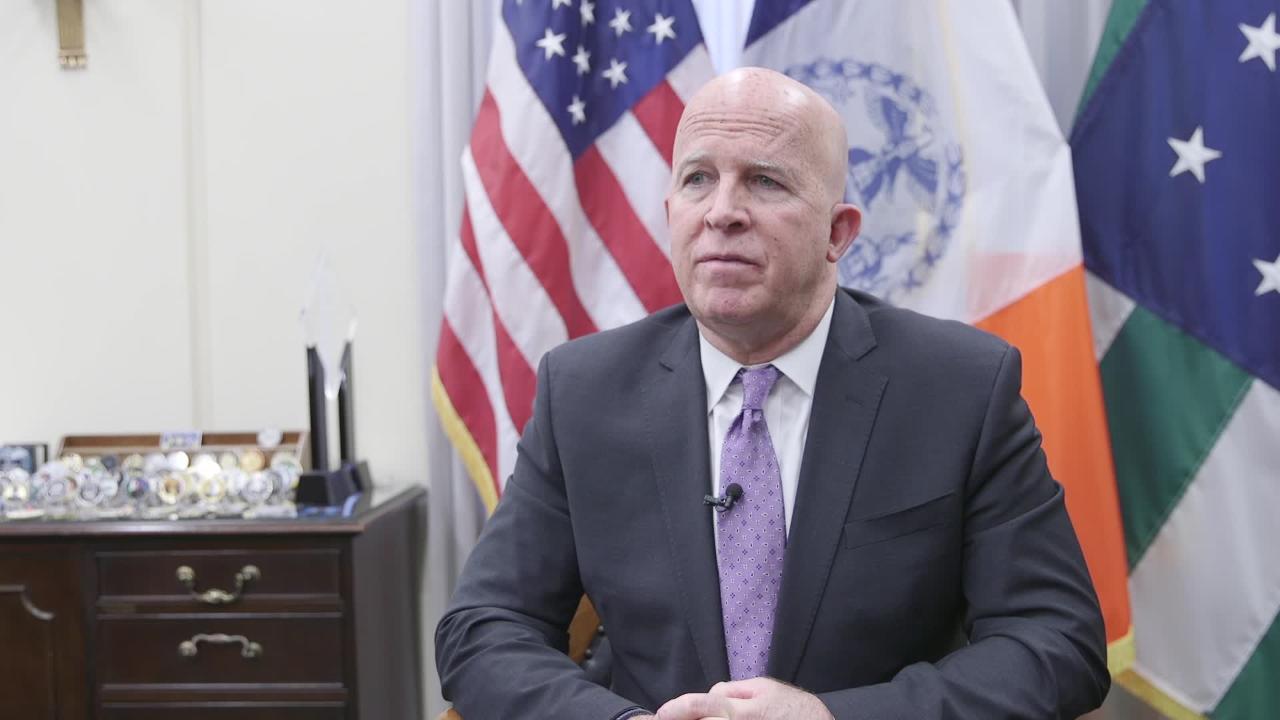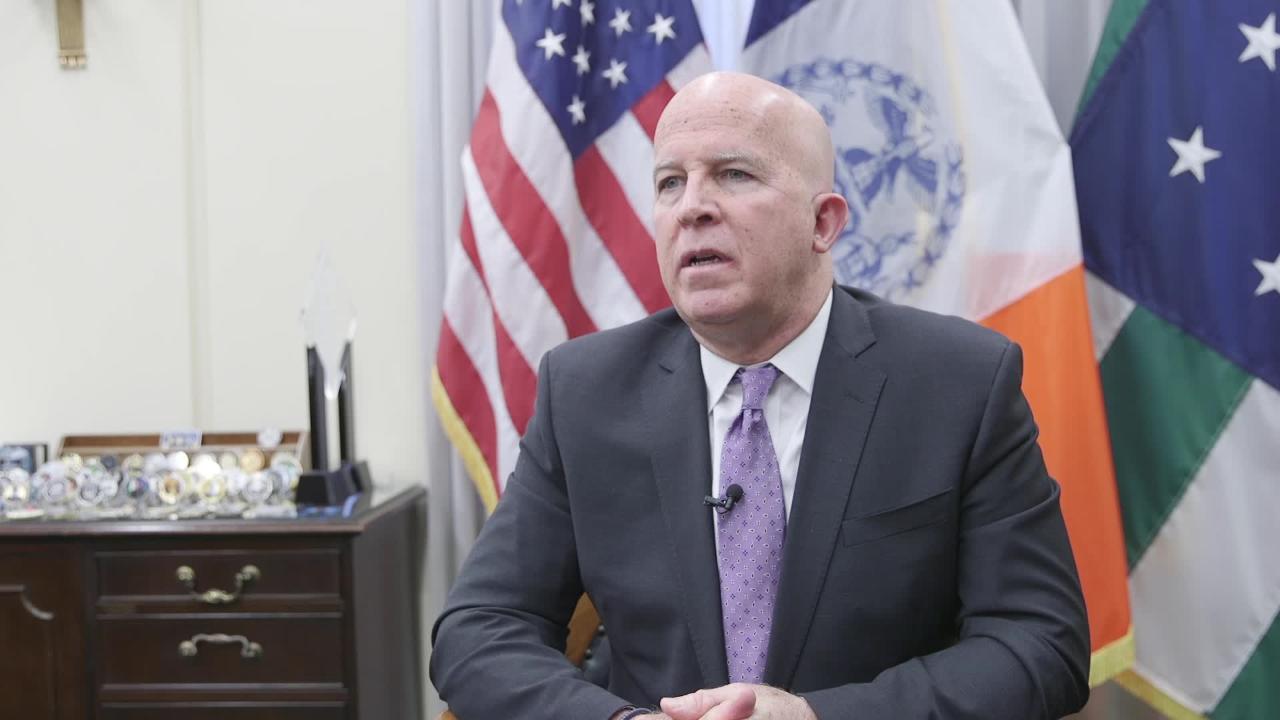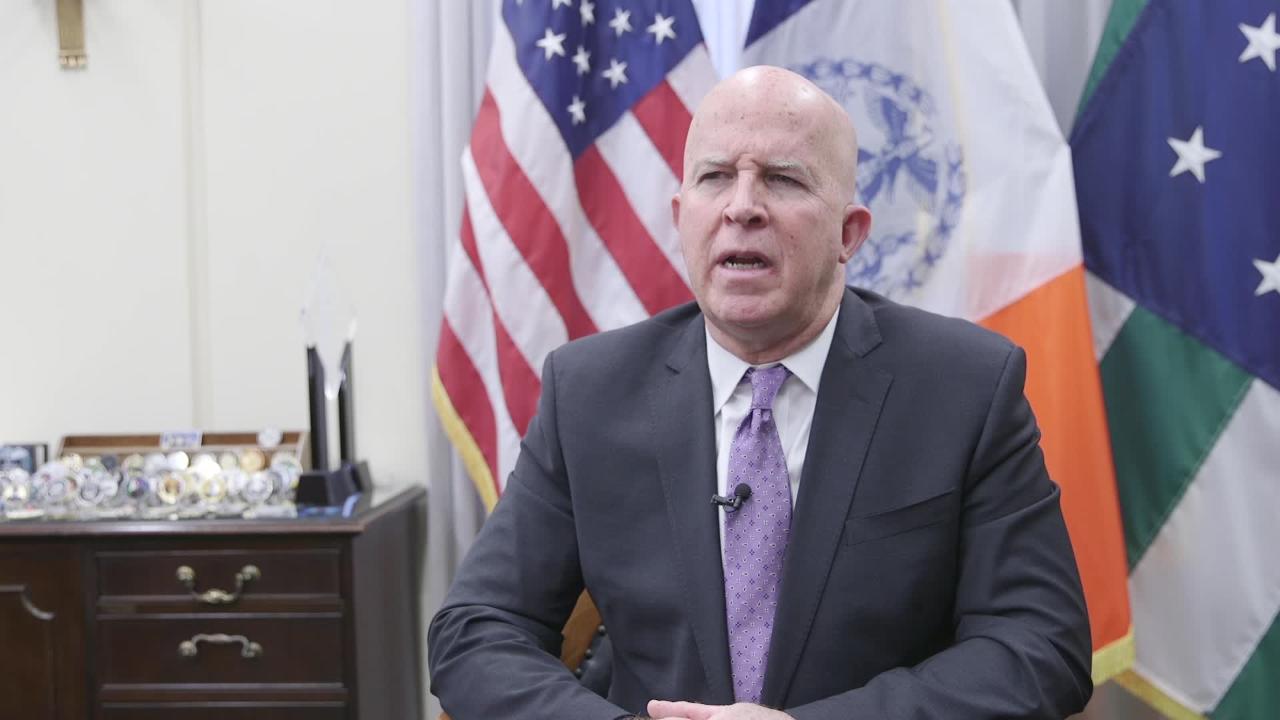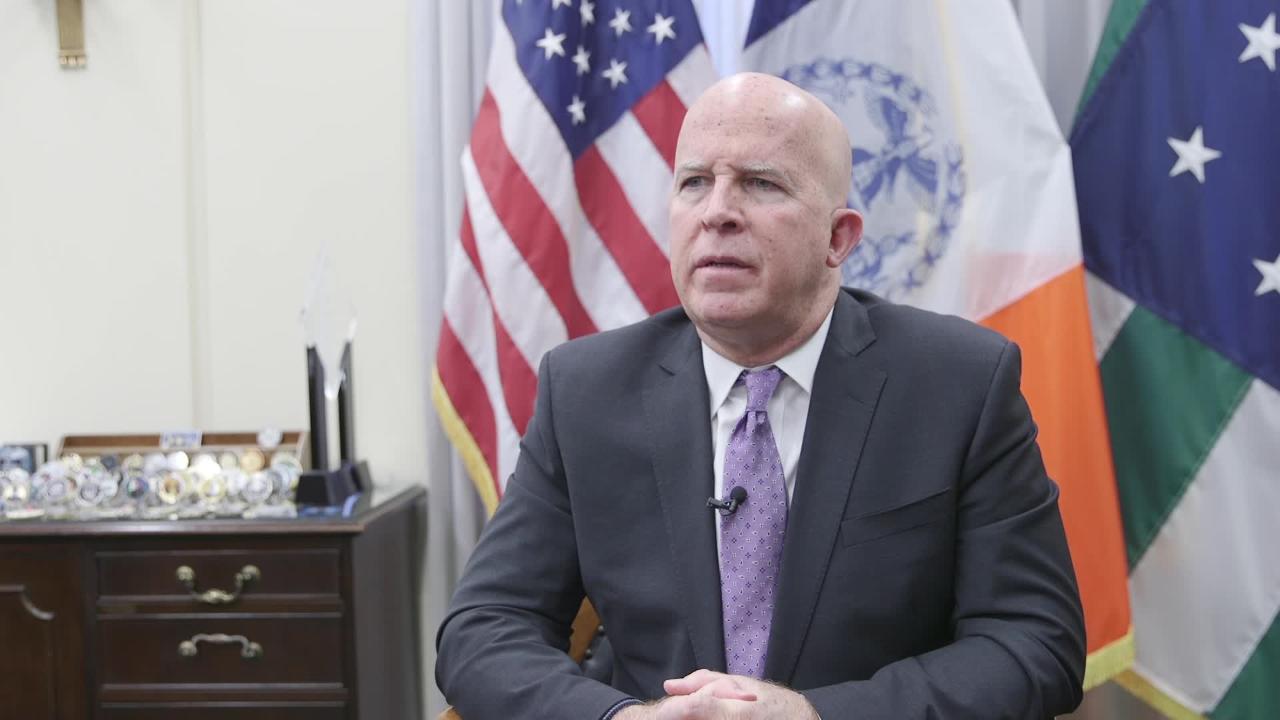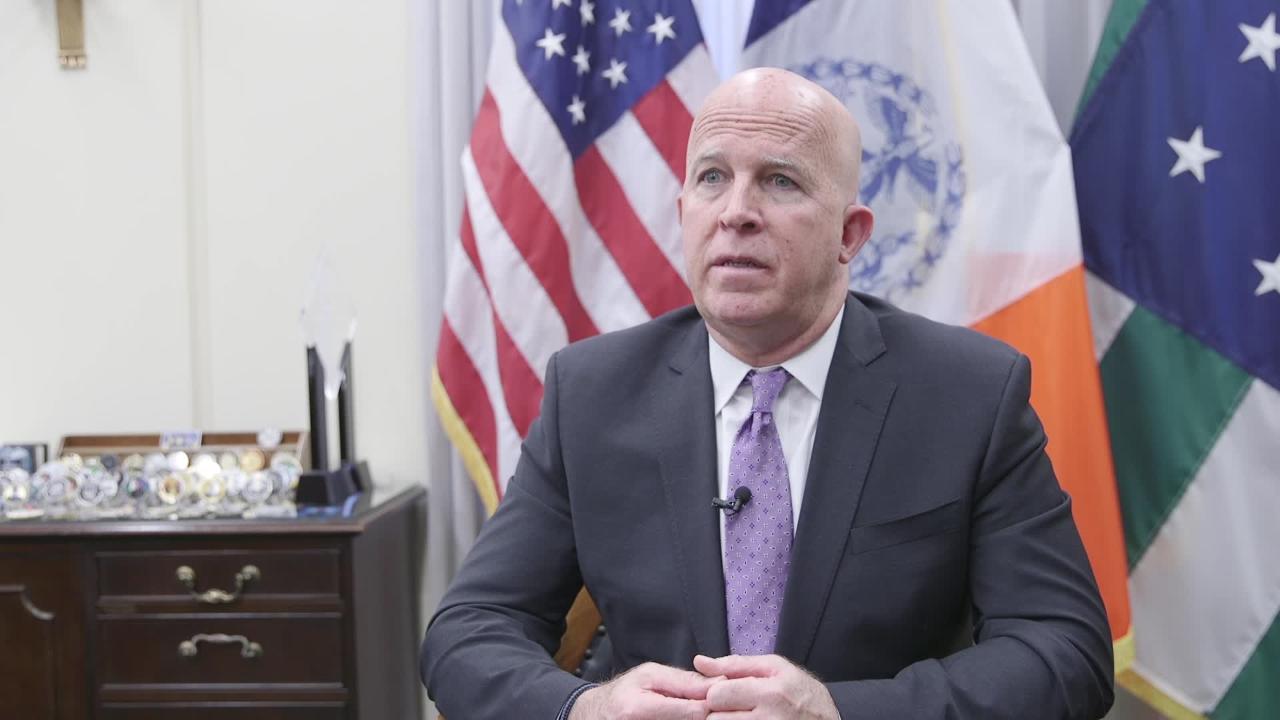US police officers face these challenges: NYPD commissioner
New York City is at the lowest crime rate since the 1950s
With its millions of residents and visitors, it's no small task to keep the crime rate low on the streets of America's most populated city.
The New York City Police Department employs more than 36,000 uniformed cops and 18,000 civilian members to oversee the safety and security of the Big Apple. But recent incidents display the disrespect aimed at the people tasked with keeping the public safe.
Violence against police officers garnered national attention this summer after a slew of viral videos showed attackers throwing buckets full of water on unsuspecting officers and, in some cases, the buckets themselves.
HERE'S HOW MUCH POLICE OFFICERS MAKE TO PUT THEIR LIVES ON THE LINE
Just this month, a police officer on patrol was harassed by a group of bikers at a Bronx gas station.
Outgoing New York City Police Commissioner James O'Neill told FOX Business social media certainly has an influence on policing.
ROLE OF SOCIAL MEDIA
“There's a lot of great work that we're able to push out there now, whether it's on Twitter or Facebook or Instagram,” O'Neill said. "But it also creates issues for us, too, in a negative way. If there's a perceived negative interaction with the police and somebody from the community, unless you get the whole picture, it can erode some of that trust."
GET FOX BUSINESS ON THE GO BY CLICKING HERE
New York City is not alone when it comes to violence against the police.
Officials in Seattle are taking dramatic steps to keep cops on the job and unveiled in September a $1.6 million plan to retain and recruit police officers. More than 100 cops left the Seattle police department for new jobs last year, some of whom cited a "hostile public" in exit interviews.
O'Neill, who has spent nearly 37 years on the job with the NYPD, says recruitment is not an issue for the largest police force in the nation and the department is as diverse as it's ever been.
"I think people that want to be police officers, I think that's kind of in your DNA. I don't come from a cop family," he said. "So maybe it'll stop some people from coming. But that's why we have recruitment. That's why we go out and make sure we have a police department that represents the diversity of the city."
RECRUITMENT AND DIVERSITY
"We're a majority minority police department ... We're the police department that looks like the city," he said, adding: "I know a lot of other police departments, they're having recruitment issues. No, we're not. We're not. That goes to that's a testament to the people doing the job."
Under O'Neill's leadership, New York City lowered several major crime categories in 2018, setting new records for public safety and crime reduction in the modern era. And, while other areas of the U.S. grapple with deadly mass shootings – which are defined as being any shoo peting incident in which four or moreople are murdered – the city hasn't fallen victim to one since 1995, when five people were killed in the Bronx.
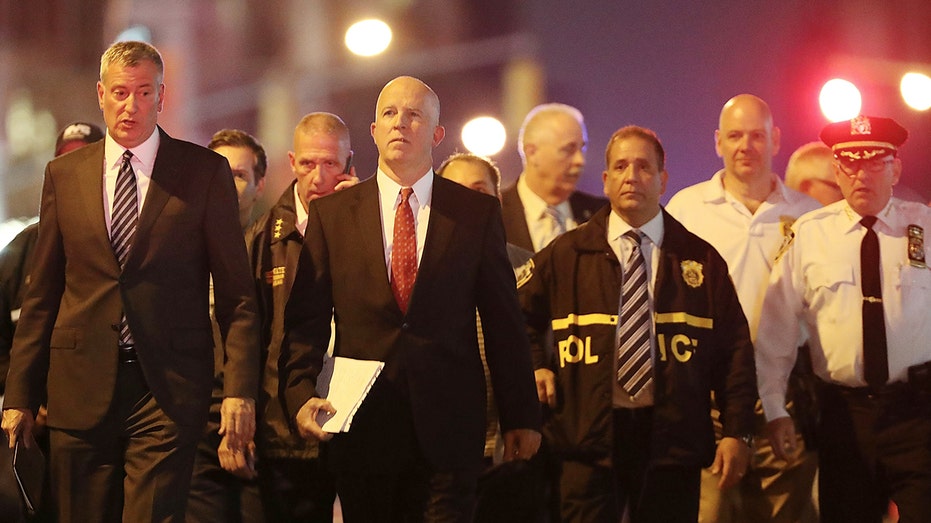
Mayor Bill de Blasio and New York Police Commissioner James O'Neill Sept. 17, 2016. (Photo by Spencer Platt/Getty Images)
The police commissioner said he attributes the lack of mass shootings to the department’s partnership agencies like the FBI, Drug Enforcement Administration and the Bureau of Alcohol, Tobacco, Firearms and Explosives and prosecutors.
MASS SHOOTINGS
"I think the biggest reason is the work we do with our partners," O'Neill said. "I think that the gun laws we have in New York state are effective ... it is important to make sure that firearms don't get into the wrong hands." The commissioner added that limiting gun violence requires a multi-strategy approach.
O'Neill announced earlier this month he’d be leaving the NYPD to serve as senior vice president and global head of physical security for Visa. New York City Mayor Bill de Blasio said O'Neill "transformed the relationship between New Yorkers and police, and helped to make the Department the most sophisticated and advanced in the country.” O'Neill will be succeeded by NYPD Chief of Detectives Dermot Shea at the end of the month.
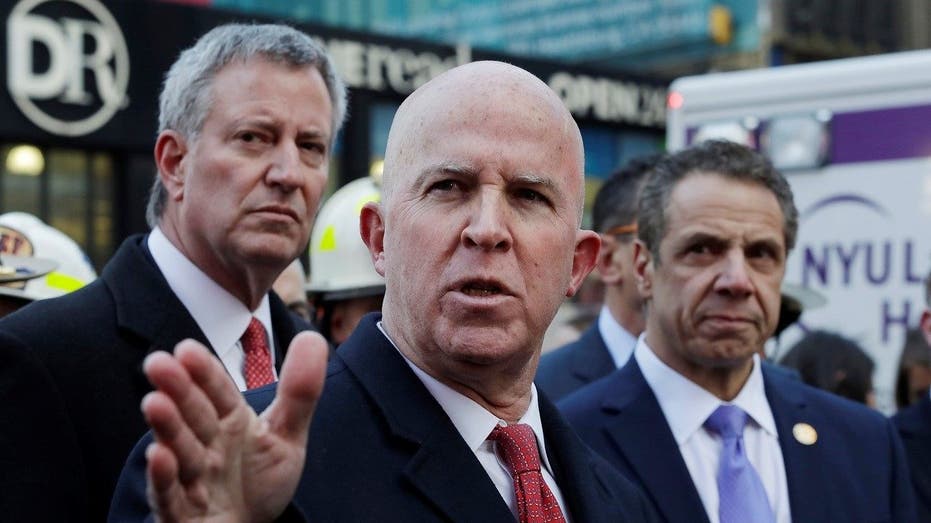
New York City Police Commissioner James O'Neill with Mayor Bill de Blasio and Gov. Andrew Cuomo Dec. 11, 2017 (AP Photo/Mark Lennihan)
The outgoing commissioner is slated to begin his new role on Dec. 2, roughly one month before New York City enacts a controversial criminal justice reform that will eliminate cash bail for certain misdemeanor crimes. In turn, a reported 40 percent of the city’s estimated 5,000 misdemeanor crime offenders are expected to be released pending a court date.
CRIMINAL JUSTICE REFORM
“When it comes to bail reform, I don’t think anyone should stay in [jail] on $500, $1,000 bail," he said. "But if you see how we’ve managed to get where we are – the murder rate ... the crime rate – it’s because we focus our resources on the very small percentage of the population involved in violence and crime."




















